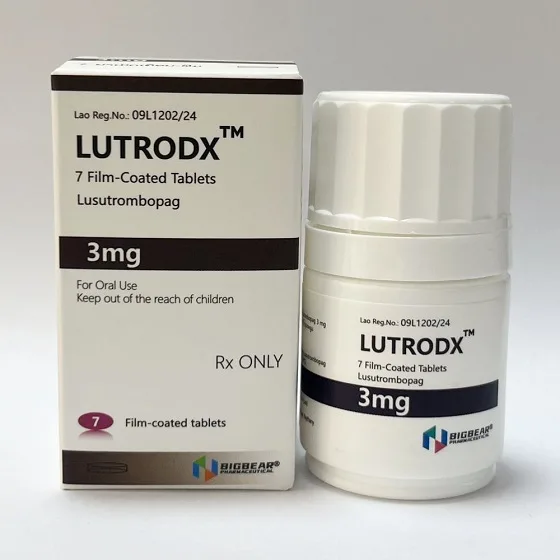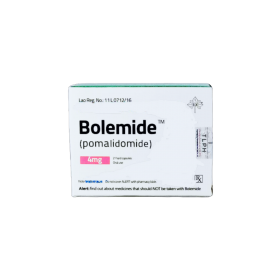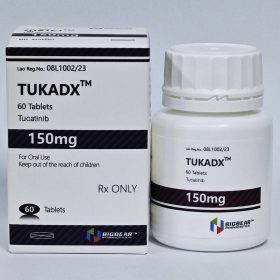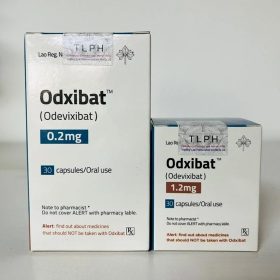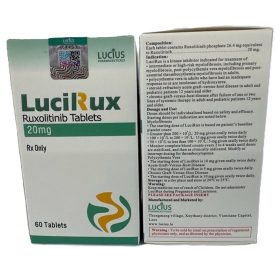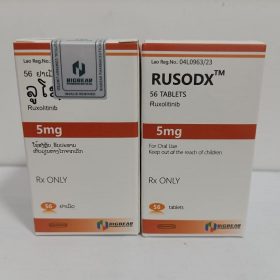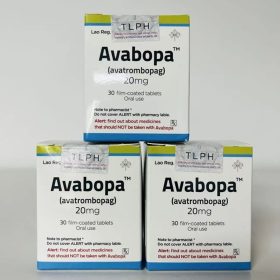- Details
- Description
-
Packaging Size7t/box
-
Strength3mg
-
CompositonLusutrombopag
-
TreatmentThrombocytopenia
-
FormTablets
-
BrandLUTRODX
-
Quantity Unit3mg*7t/box
-
ManufacturerBIGBEAR Pharma,Laos PDR
About Lusutrombopag
Lusutrombopag is a medication that has been developed for certain conditions that lead to thrombocytopenia (abnormally low platelet counts) such as thrombocytopenia associated with chronic liver disease in patients prior to elective invasive procedures.
Thrombocytopenia
Indicated for thrombocytopenia in adults with chronic liver disease who are scheduled to undergo a procedure
Begin dosing 8-14 days prior to scheduled procedure
Patients should undergo their procedure 2-8 days after the last dose
Recommended dose: 3 mg PO qDay for 7 days
Also see Administration
Dosage Modifications
Renal impairment
- Mild-to-moderate (CrCl 30-90 mL/min): No clinically meaningful effects on the pharmacokinetics
- Severe (CrCl <30 mL/min) or hemodialysis: Limited data
Hepatic impairment
- Mild-to-moderate (Child-Pugh A or B): No clinically meaningful effects on the pharmacokinetics
- Severe (Child-Pugh C): Mean observed peak plasma concentration and AUC decreased by 20-30% in patients (compared with patients with Child-Pugh A and B); however, ranges for peak plasma concentration and AUC overlapped among patients with Child-Pugh class A, B, and C liver disease
Dosing Considerations
Investigated only as a single 7–day, once-daily dosing regimen in clinical trials in patients with chronic liver disease
Not to be administered to patients with chronic liver disease in an attempt to normalize platelet counts
Monitoring
- Obtain a platelet count prior to initiating and not more than 2 days before the procedure

